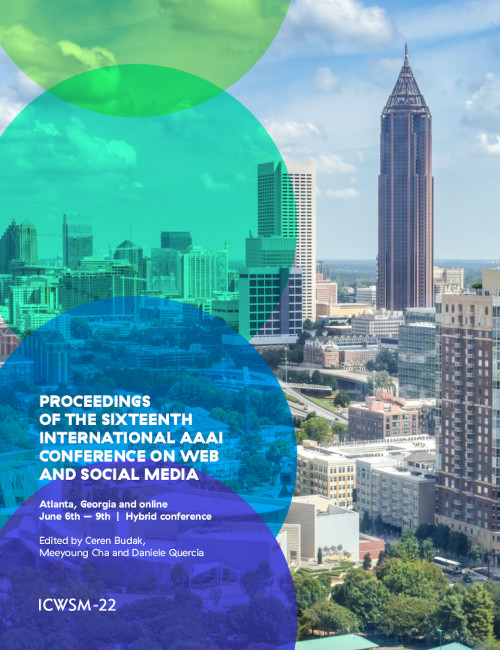Influence of Repetition through Limited Recall
DOI:
https://doi.org/10.1609/icwsm.v16i1.19341Keywords:
Organizational and group behavior mediated by social media; interpersonal communication mediated by social media, Centrality/influence of social media publications and authors, Ranking/relevance of social media content and users, Human computer interaction; social media tools; navigation and visualizationAbstract
Decision makers who receive many signals are subject to imperfect recall. This is especially important when learning from feeds that aggregate messages from many senders on social media platforms. In this paper, we study a stylized model of learning from feeds and highlight the inefficiencies that arise due to imperfect recall. In our model, failure to recall a specific message comes from the accumulation of messages which creates interference. We characterize the influence of each sender according to the rate at which she sends messages and to the strength of interference. Our analysis indicates that imperfect recall not only leads to double-counting and extreme opinions in finite populations, but also impedes the ability of the receiver to learn the true state as the population of the senders increases. We estimate the strength of interference in an online experiment where participants are exposed to (non-informative) repeated messages and they need to estimate the opinion of others. Results show that interference plays a significant role and is weaker among participants who disagree with each other. Our work has implication for the diffusion of information in networks, especially when it is false because it is shared and repeated more than true information.Downloads
Published
2022-05-31
How to Cite
Sassine, J., Rahimian, M. A., & Eckles, D. (2022). Influence of Repetition through Limited Recall. Proceedings of the International AAAI Conference on Web and Social Media, 16(1), 863-872. https://doi.org/10.1609/icwsm.v16i1.19341
Issue
Section
Full Papers

